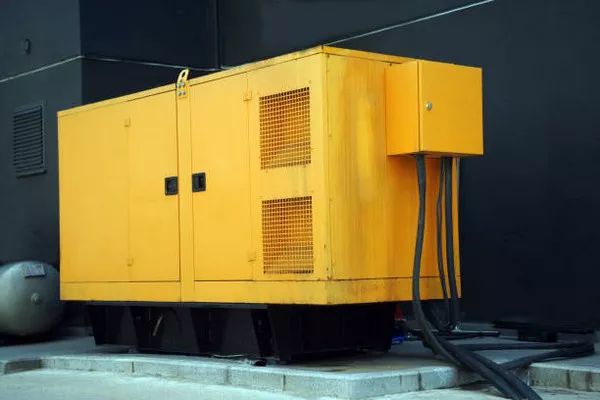Natural gas generators have become an increasingly popular choice for power generation across various applications. Known for their efficiency and environmental benefits, these generators are utilized in residential, commercial, and industrial settings. This article delves into the inner workings of natural gas generators, exploring their components, operation, advantages, and applications.
1. What is a Natural Gas Generator?
A natural gas generator converts natural gas into electricity through a combustion process. These generators can be used as backup power sources, for off-grid applications, or as primary power supplies for various operations.
2. Components of a Natural Gas Generator
Understanding the components of a natural gas generator is crucial to comprehending how it operates. Here are the primary parts:
Natural Gas Engine
The engine is the core component that converts fuel into mechanical energy. Natural gas engines can be classified into two main types:
Reciprocating Engines: Use pistons to convert gas into mechanical energy.
Gas Turbines: Use rotating blades to produce power from high-pressure gas.
Alternator
The alternator converts the mechanical energy produced by the engine into electrical energy. It works by rotating a magnetic field within a coil of wire, generating alternating current (AC).
Fuel System
The fuel system includes components that store and supply natural gas to the engine. Key elements include:
Fuel Tank: Stores natural gas.
Regulator: Controls gas pressure for optimal engine performance.
Fuel Lines: Transport gas from the tank to the engine.
Cooling System
The cooling system manages the temperature of the engine to prevent overheating. This typically involves water or air cooling methods.
Control Panel
The control panel allows operators to monitor and manage generator performance. It includes gauges for voltage, frequency, and fuel levels, as well as controls for starting and stopping the generator.
Exhaust System
The exhaust system directs harmful gases away from the engine and includes components like mufflers to reduce noise.
3. How Do Natural Gas Generators Work?
The Combustion Process
The operation of a natural gas generator begins with the combustion of natural gas within the engine’s cylinders. Here’s a step-by-step breakdown:
Intake Stroke: Natural gas is drawn into the cylinder.
Compression Stroke: The piston compresses the gas, increasing its temperature and pressure.
Ignition: A spark plug ignites the compressed gas, causing an explosion that forces the piston down.
Power Stroke: The downward movement of the piston converts thermal energy into mechanical energy.
Exhaust Stroke: The piston moves up, pushing exhaust gases out of the cylinder.
Energy Conversion
Once the engine generates mechanical energy, the alternator converts it into electricity:
The mechanical energy spins the rotor within the alternator.
This movement creates a magnetic field that induces an electrical current in the stator coils, generating electricity.
4. Advantages of Natural Gas Generators
Environmental Benefits
Natural gas generators produce fewer greenhouse gas emissions compared to diesel or coal-fired generators. They emit lower levels of nitrogen oxides (NOx) and particulate matter, making them a cleaner energy option.
Cost Efficiency
Natural gas is often more affordable than other fuels, leading to lower operating costs. Additionally, natural gas generators require less frequent maintenance due to cleaner combustion.
Reliability and Performance
Natural gas generators can provide continuous power, making them suitable for both backup and primary applications. They can start quickly and run for extended periods without interruption.
Noise Levels
These generators typically operate quieter than diesel generators, making them ideal for residential areas and noise-sensitive environments.
5. Applications of Natural Gas Generators
Residential Use
Natural gas generators are popular for home backup power systems, ensuring that essential appliances and systems remain operational during outages.
Commercial Use
Many businesses rely on natural gas generators for backup power, particularly those that require uninterrupted operations, such as data centers and healthcare facilities.
Industrial Use
In industrial settings, natural gas generators are used to power equipment, machinery, and processes, contributing to increased efficiency and productivity.
Remote Locations
Natural gas generators are suitable for powering remote sites where grid access is limited or unavailable, such as construction sites and agricultural operations.
6. Factors to Consider When Choosing a Natural Gas Generator
Power Requirements
Calculating the total wattage needed for your applications is essential to selecting the right generator size. Consider both continuous and peak power needs.
Fuel Availability
Ensure that a reliable supply of natural gas is available in your area. Some generators can also operate on propane, providing flexibility.
Noise Level
Evaluate the noise output of the generator, especially if it will be used in residential areas or other noise-sensitive environments.
Portability
If you need a generator that can be moved easily, look for portable models designed for mobility.
Maintenance
Consider the maintenance requirements and costs associated with the generator. Opt for models with easy access to components for routine checks.
7. Maintenance of Natural Gas Generators
Regular Inspections
Conduct regular inspections to identify potential issues early. Check oil levels, coolant levels, and other essential fluids.
Oil Changes
Regular oil changes are crucial for engine health. Follow the manufacturer’s recommendations for oil change intervals.
Air Filter Maintenance
Keep the air filter clean to ensure proper airflow to the engine. Replace it as needed to maintain optimal performance.
Fuel System Maintenance
Regularly check and maintain the fuel system to prevent blockages and ensure efficient fuel delivery.
Battery Maintenance
Ensure the battery is in good condition for reliable starting. Regularly check the battery terminals and connections for corrosion.
8. Conclusion
Natural gas generators offer an efficient, reliable, and environmentally friendly option for power generation. Understanding their components, operation, and benefits allows users to make informed decisions when selecting and maintaining these generators. With applications ranging from residential backup power to industrial use, natural gas generators continue to play a vital role in modern energy solutions. Whether for emergency power or continuous operation, these generators are a valuable investment in a sustainable future.
Related topics:

